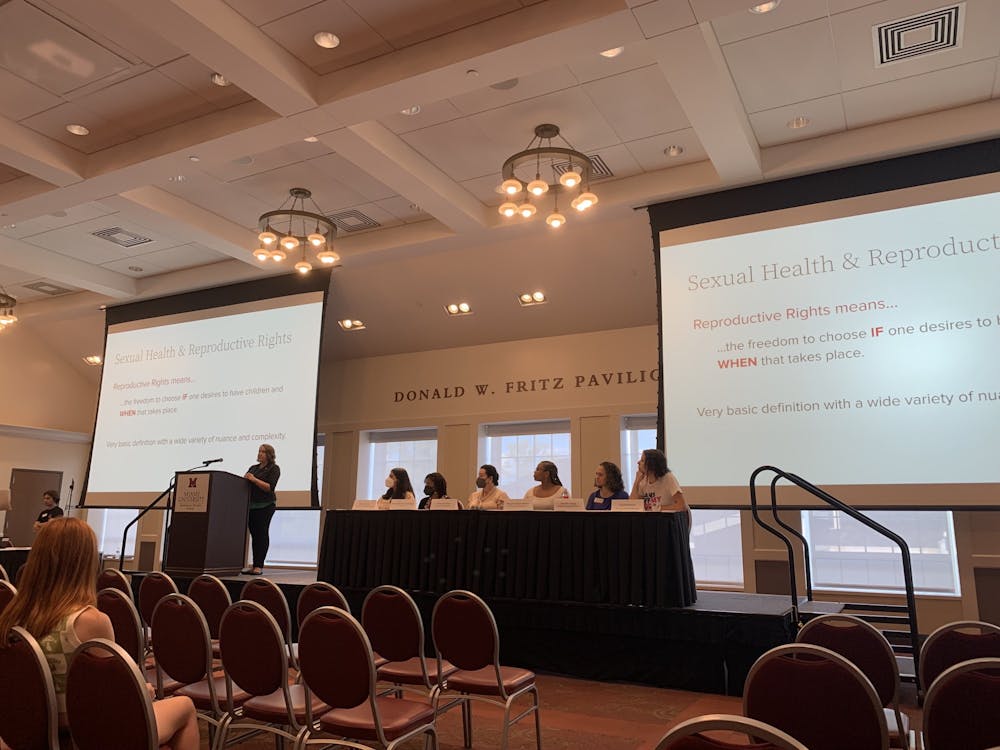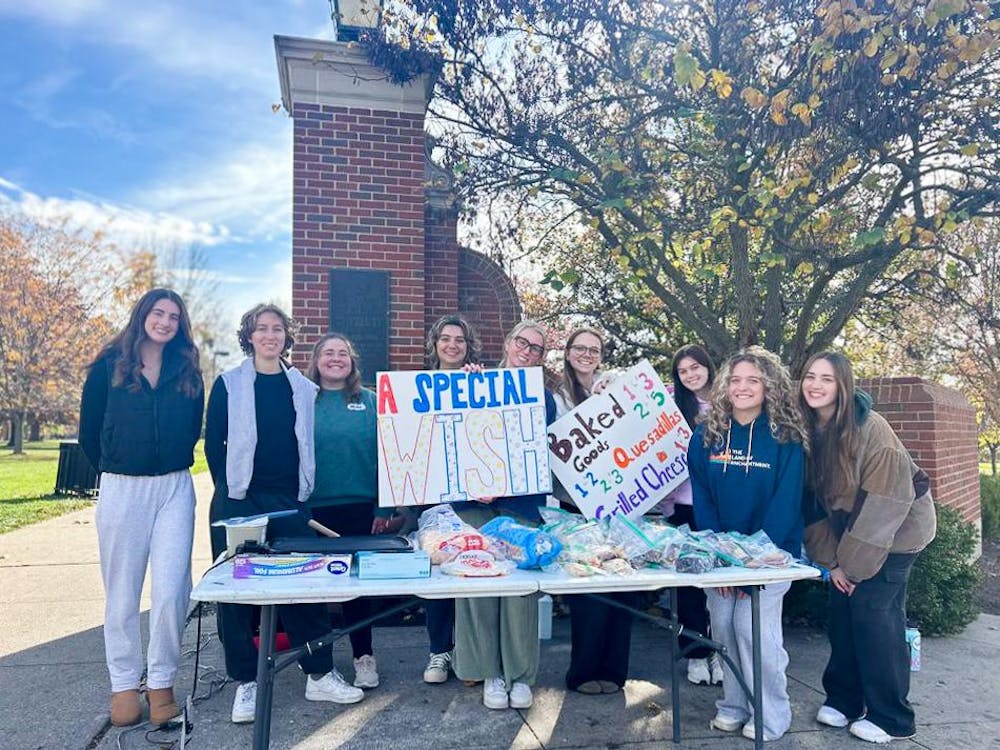Two months after the U.S. Supreme Court overturned Roe v. Wade, Miami University held a Reproductive Rights Town Hall in Armstrong Student Center.
The event, held on Thursday, Sept. 1, was sponsored by the Panhellenic Association and organized by the Center for Student Diversity and Inclusion.
Featured panelists came from the Office of the Dean of Students, Tri-Health, Aetna Student Health, the Office of Student Wellness, Student Counseling Service and Planned Parenthood.
Megan Kuykendoll, one of the event’s main speakers and director of Miami’s Sexuality Education Studies Center, said the event’s purpose was to provide students with resources and answers surrounding their reproductive rights.
“It was mostly organized … thinking about what information our students might need and how legislation over the summer may have changed what they had access to,” Kuykendoll said. “We’re in an age range for college students where abortion may be needed, and access to reproductive rights and reproductive health is an important part of that.”
The town hall began with a presentation covering state and federal legislation. It included statistics about abortion throughout the nation, as well as resources for students, including the Abortion Fund of Ohio, which provides funding for those seeking abortions.
During the presentation, speaker Jacqueline Daugherty, director of the Western Center for Social Impact and Innovation, talked about what the Roe v. Wade overturning could mean for the nation.
“Bans don’t stop abortions,” Daugherty said. “They stop safe abortions.”
After the presentation, panelists discussed their organizations’ resources. Information ranged from Title IX, which protects students from sexual discrimination, to psychology programs from the Student Counseling Service. Panelists then answered questions that students had submitted before the presentation.
Allison Kumar, assistant dean of students and one of the event’s panelists, said it was important to have panelists at the event rather than just a presenter.
“There’s a lot of misinformation and confusion around this topic right now,” Kumar said. “To be able to come together and hear from reputable sources and different campus partners, I think that equips students to do what’s best for them.”
Students were also invited to visit tables where they could interact with organizations represented during the presentation for information and further questions.
Enjoy what you're reading?
Signup for our newsletter
Gwendolyn Rhorer, a first-year majoring in microbiology and sustainability, said she came because her professor was giving her extra credit for attending, but she’s also an advocate for helping people.
“I’ve always cared about the rights of my gender and the other people that inhabit this planet with me because I believe we should help the other people,” Rhorer said. “I also believe that helping make other people’s lives easier should be something that all humans should do, and I just wanted to get more information about what exactly I could do.”
Kenna Neitch, a women’s gender and sexuality studies professor, also attended the event, hoping to help students who needed to talk. She said it’s important for students to have accurate information about resources. Daugherty echoed this statement.
“It’s a pretty scary time for some students,” Daugherty said. “I want to make sure … they know what their rights are, they know what their resources are and they’re able to get information when that changes because we will see a number of shifts in coming years.”
Students who missed the event can contact the organizations from the event for more information.




